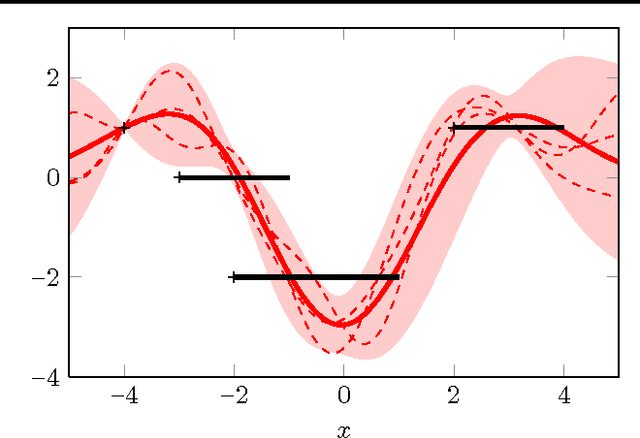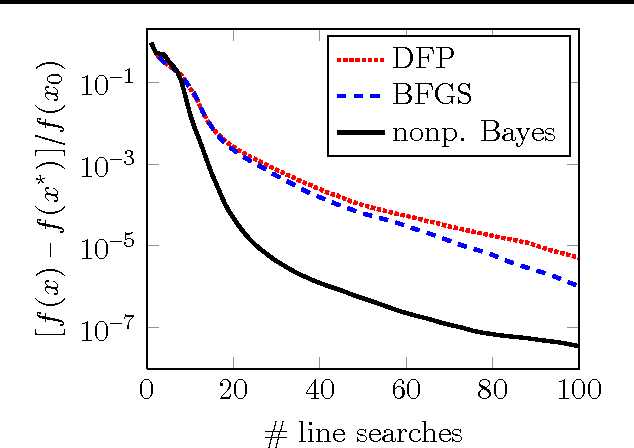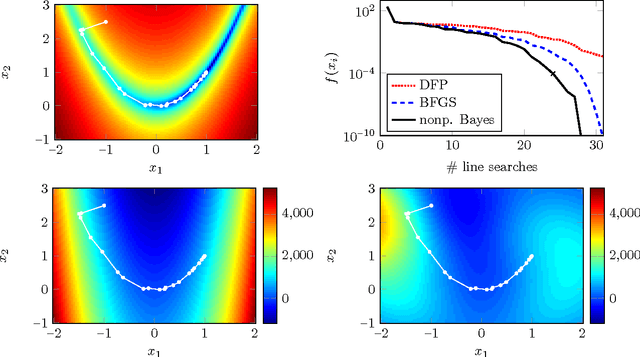Quasi-Newton Methods: A New Direction
Paper and Code
Jun 18, 2012


Four decades after their invention, quasi-Newton methods are still state of the art in unconstrained numerical optimization. Although not usually interpreted thus, these are learning algorithms that fit a local quadratic approximation to the objective function. We show that many, including the most popular, quasi-Newton methods can be interpreted as approximations of Bayesian linear regression under varying prior assumptions. This new notion elucidates some shortcomings of classical algorithms, and lights the way to a novel nonparametric quasi-Newton method, which is able to make more efficient use of available information at computational cost similar to its predecessors.
* ICML2012
 Add to Chrome
Add to Chrome Add to Firefox
Add to Firefox Add to Edge
Add to Edge